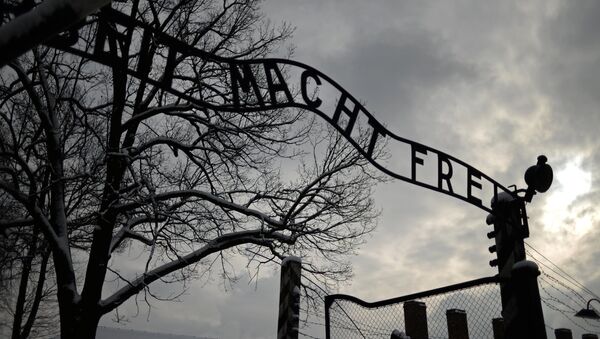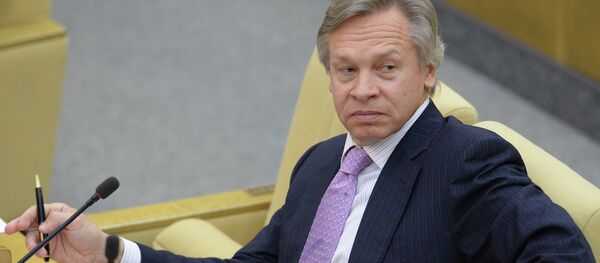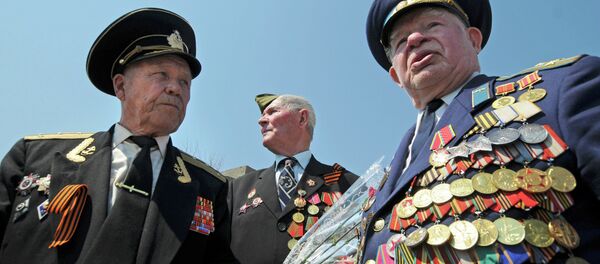MOSCOW, January 27 (Sputnik) — Poland's interpretation of World War II differs "radically" from that of Russia despite the common elements of historical events, Polish Ambassador to Russia Katarzyna Pelchinska-Nalecz told Sputnik on Tuesday.
"There are elements where history is common, but our interpretation and emotional attitude toward them are radically different," Pelchinska-Nalecz said in an interview with Sputnik.
"The official interpretation of history, a single and unitary official position on one fact or another may limit discussion restricting access to these facts, to free pluralistic, as well as scientific, thinking about our past," Pelchinska-Nalecz said.
Last Wednesday's comments made by the Polish foreign minister dismissing Russia's role in the Soviet Army's liberation of the Auschwitz concentration camp caused outrage among Russian leadership. Ukrainian Prime Minister Arseniy Yatsenyuk remarked on the "Soviet invasion [of] Ukraine and Germany" in a visit to Berlin earlier in January.
In December 2014, Ukraine voted against the UN General Assembly resolution on fighting the glorification of Nazism.
Tuesday marks International Holocaust Remembrance Day, commemorating the millions of victims of one of the most appalling crimes in the history of mankind.
On January 27, 1945, Soviet troops entered southwestern Poland, liberating 7,600 prisoners from Auschwitz-Birkenau. The Nazi camp — which has become the biggest and most notable symbol of the Holocaust — now houses the Auschwitz-Birkenau State Museum. Some 300 survivors and senior politicians from nearly 40 countries are expected to attend the remembrance event.
Russia is represented at the commemoration by the Chief of Staff of the Presidential Executive Office, Sergei Ivanov.



